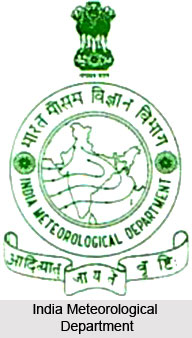 The Ministry of Earth Sciences (MoES) is mandated to provide the nation with best possible services in forecasting the monsoons and other weather/climate parameters, ocean state, earthquakes, tsunamis and other phenomena related to earth systems through well integrated programmes. The Ministry also deals with science and technology for exploration and exploitation of ocean resources (living and non-living), and plays a nodal role for Antarctic/Arctic and Southern Ocean research. The Ministry`s main responsibility is to look after Atmospheric Sciences, Ocean Science and Technology and Seismology in an integrated manner. MoES aims to create a framework for understanding the complex interactions among key elements of the Earth System, namely ocean, atmosphere and solid earth, by encompassing national programmes in Ocean science, meteorology, climate, environment and seismology.
The Ministry of Earth Sciences (MoES) is mandated to provide the nation with best possible services in forecasting the monsoons and other weather/climate parameters, ocean state, earthquakes, tsunamis and other phenomena related to earth systems through well integrated programmes. The Ministry also deals with science and technology for exploration and exploitation of ocean resources (living and non-living), and plays a nodal role for Antarctic/Arctic and Southern Ocean research. The Ministry`s main responsibility is to look after Atmospheric Sciences, Ocean Science and Technology and Seismology in an integrated manner. MoES aims to create a framework for understanding the complex interactions among key elements of the Earth System, namely ocean, atmosphere and solid earth, by encompassing national programmes in Ocean science, meteorology, climate, environment and seismology.
Organisation of Ministry of Earth Sciences
The Earth Commission, under which the Ministry of Earth Sciences works in Mission Mode based on Commission structure, is responsible for formulating policies, oversee implementation of policies and programs in mission mode, and ensure the necessary interdisciplinary integration.
The various Units under the Ministry of Earth Sciences are: India Meteorological Department (IMD), National Centre for Medium Range Weather Forecasting (NCMRWF), Indian Institute of Tropical Meteorology (IITM), Pune, and Earthquake Risk Evaluation Centre (EREC) under the Atmospheric Sciences and Seismology sector; National Institute of Ocean Technology (NIOT) Chennai, National Centre for Antarctic and Ocean Research (NCAOR) Goa, Indian National Centre for Ocean Information Services (INCOIS) Hyderabad, Integrated Coastal and Marine Area Management Project Directorate (ICMAM-PD) Chennai, and Centre for Marine Living Resources and Ecology (CMLRE) Kochi under the Ocean Science and Technology sector.
This article is a stub. You can enrich by adding more information to it. Send your Write Up to content@indianetzone.com




















